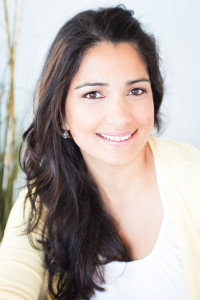Ellen Swallow Richards (December 3, 1842 ” March 30, 1911) was the foremost female industrial and environmental chemist in the United States in the 1800s, pioneering the field of sanitary engineering and founding the field of home economics. Richards was the first woman admitted to the Massachusetts Institute of Technology and its first female instructor, the first woman in America accepted to any school of science and technology, and the first American woman to earn a degree in chemistry.
Ellen was a “pragmatic” feminist, as well as a founding “ecofeminist” who believed that women’s work within the home was a vital aspect of the economy.
Born (to Fanny Taylor and Peter Swallow) to an old Dunstable, Massachusetts family of modest means which prized education, Ellen Swallow taught, tutored, and cleaned for years, finally saving $300 to enter Vassar College in 1868, earning her bachelor’s degree two years later. After failing to find suitable employment as an industrial chemist after graduation, she entered MIT to continue her studies, “it being understood that her admission did not establish a precedent for the general admission of females” according to the records of the meeting of the MIT Corporation on December 14, 1870. Three years later she received a Bachelor of Science degree from MIT for her thesis Notes on Some Sulpharsenites and Sulphantimonites from Colorado, as well as a Master of Arts degree from Vassar for a thesis on the chemical analysis of iron ore. She continued her studies at MIT and would have been awarded its first doctoral degree, but MIT balked at granting this distinction to a woman, and did not award its first doctorate until 1886.
In 1875 Ellen Swallow married Robert H. Richards, chairman of the Mine Engineering Department at MIT. With his support she remained associated with MIT, volunteering her services as well as contributing $1,000 annually to create programs for female students. In 1876, with the urging of the Women’s Education Association of Boston, the MIT Women’s Laboratory was created, where in 1879 she became an assistant instructor (without pay) in the fields of chemical analysis, industrial chemistry, mineralogy, and applied biology, under Professor John M. Ordway. In 1883, MIT began accepting women and awarding them degrees as regular students, and the Laboratory was closed.
From 1884 until her death, Ellen Richards was an instructor in the newly founded laboratory of sanitary chemistry, the first in the United States, headed by her former professor William R. Nichols. In 1887, the laboratory, under Richards, conducted a study of water quality in Massachusetts for the Massachusetts State Board of Health involving over 20,000 samples, the first such study in America. As a result, Massachusetts established the first water-quality standards in America, as well as the first modern sewage treatment plant, in Lowell, Massachusetts. Richards was a consulting chemist for the Massachusetts State Board of Health from 1872 to 1875, and the official water analyst from 1887 until 1897. She also served as a consultant to the Manufacturers Mutual Fire Insurance Co, and in 1900 wrote the textbook Air, Water, and Food from a Sanitary Standpoint, with A. G. Woodman. Her interest in the environment led her in 1892 to introduce into English the word ecology which had been coined in German to describe the “household of nature”.
Richards’ interests also included applying scientific principles to domestic situations, such as nutrition, clothing, physical fitness, sanitation, and efficient home management, creating the field of home economics. “Perhaps the fact that I am not a Radical and that I do not scorn womanly duties but claim it as a privilege to clean up and sort of supervise the room and sew things is winning me stronger allies than anything else”, she wrote to her parents. She published The Chemistry of Cooking and Cleaning: A Manual for House-keepers in 1882, designed and demonstrated model kitchens, devised curricula, and organized conferences. In 1908, she was chosen to be the first president of the newly formed American Home Economics Association. Her books and writings on this topic include Conservation by Sanitation, The Chemistry of Cooking and Cleaning, The Cost of Living, The Cost of Food, The Cost of Shelter, The Art of Right Living, and The Cost of Cleanness.
Richards served on the Board of Trustees of Vassar College for many years, and was granted an honorary Doctor of Science degree in 1910. She died at Jamaica Plain, Massachusetts, in 1911. In her honor, MIT designated a room in the main buildings for the use of women students, and in 1973, on the occasion of the hundredth anniversary of Richard’s graduation, established the Ellen Swallow Richards Professorship for distinguished female faculty members.
Source: Wikipedia

1 comment
abby
can you please explain her thesis on iron ore?